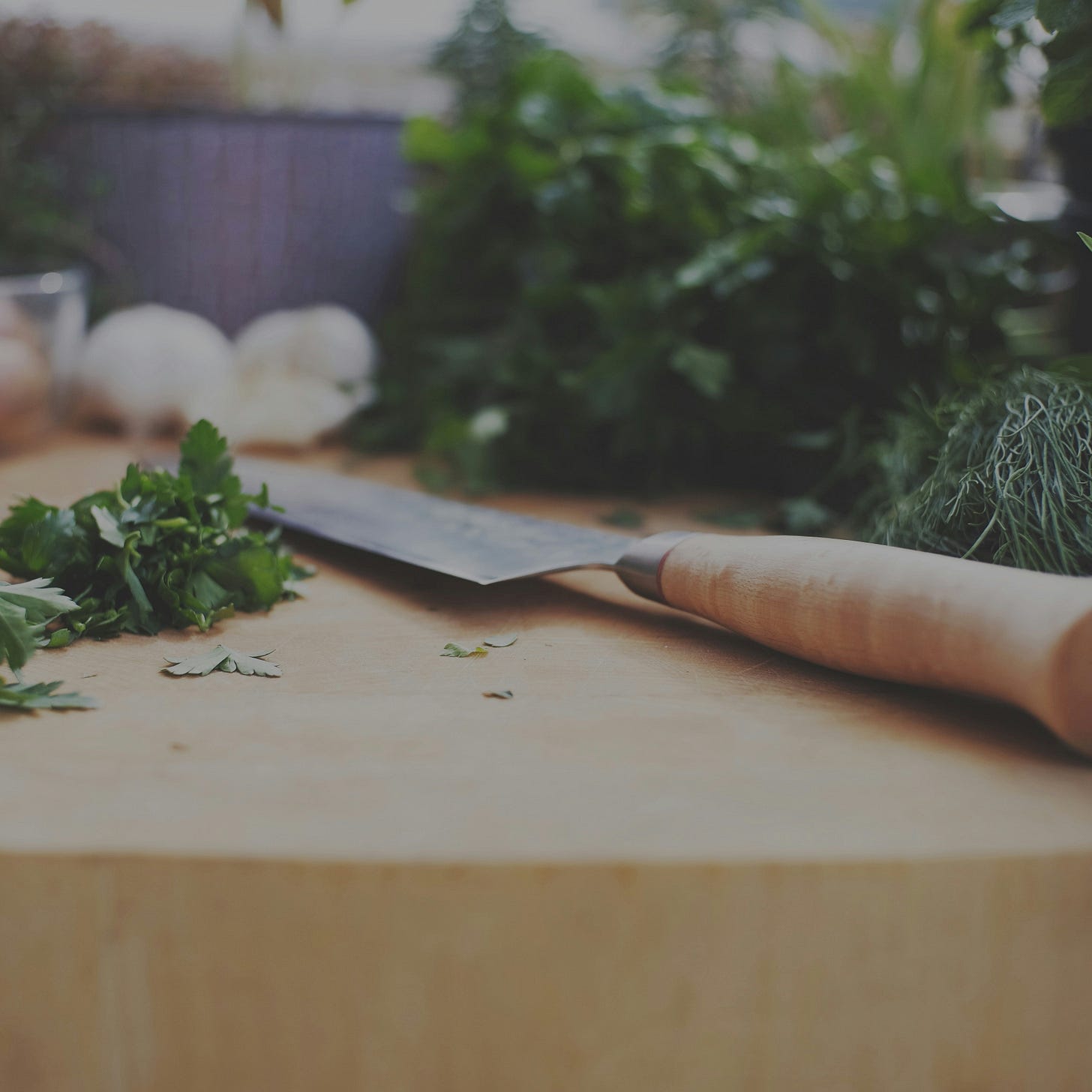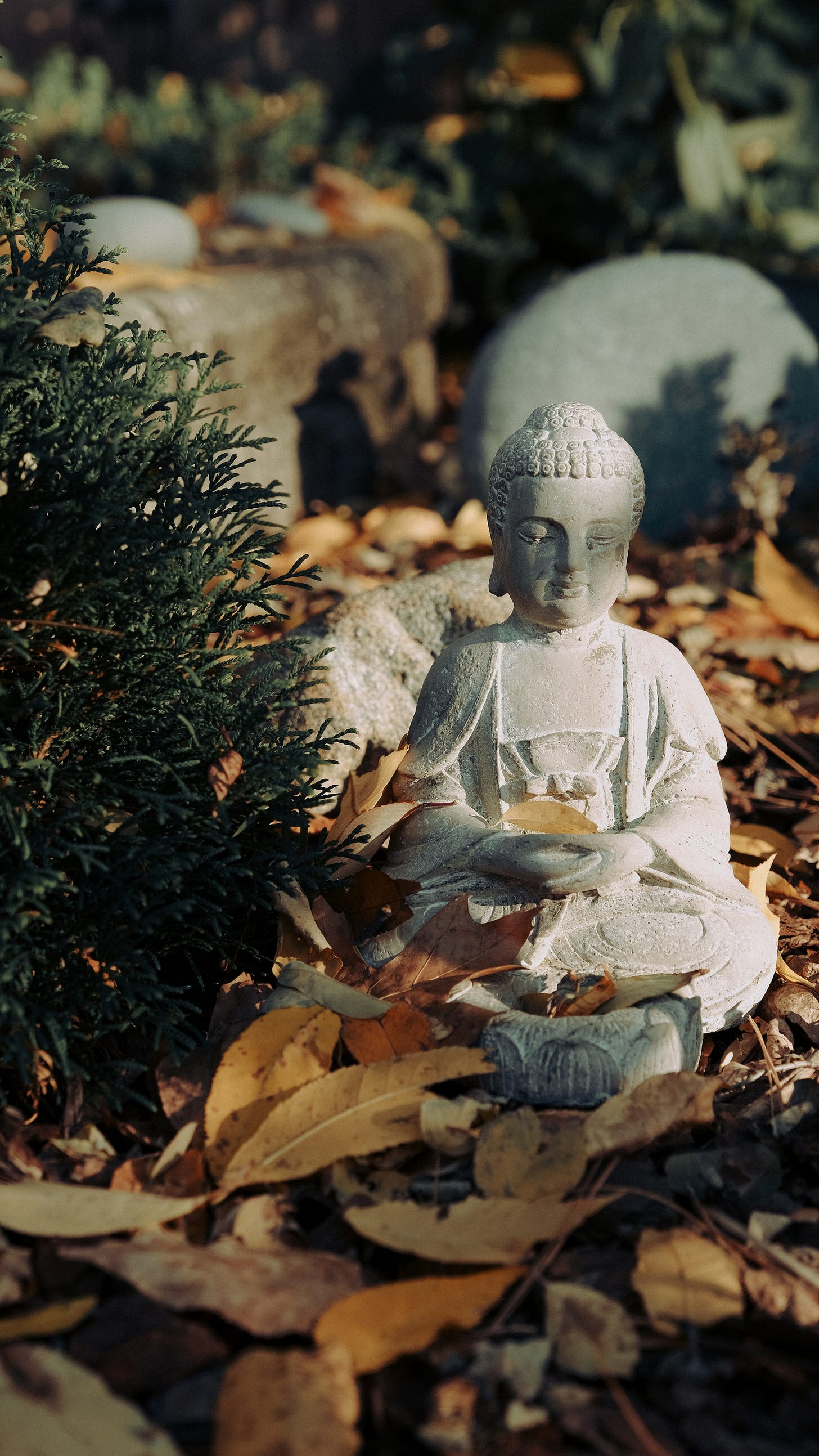In our quest for health are we losing touch with the essence of wellness?
Supplements in a Bottle, but Roots a World Away
“ Once, we turned to herbs as food, as medicine, as the quiet wisdom of the earth. But somewhere along the way, we traded roots in the soil for powders in a bottle — and I wonder, in that exchange, what we’ve lost.” Forage & Gather
Picture from Unsplash
I didn’t expect it to hit me like that. But the other day, as I walked into Whole Foods — surrounded by row after row of supplements — I suddenly had a strange, almost uncomfortable realization.
We’ve become a society that treats supplements the way we used to treat pharmaceuticals. We’ve swapped one pill for another, convincing ourselves that our health can be measured by the number of bottles in our cabinet.
But when did this happen? And why?
I’ve always believed in the quiet, green wisdom of the garden — in the healing power of herbs, not just as remedies but as food. I’ve spent years working with plants, gathering nettles for spring soups, plucking dandelion leaves for salads, simmering elderberries into winter tonics. These aren’t just recipes. They’re medicine.
But somehow, we’ve wandered far from that ancient truth.
We’ve gone from using plants as nourishment to using them as pills.
From roots in the earth to powders in gelatin capsules and glass jars.
From whole herbs that whisper of wild places to shelves lined with capsules and tinctures — each promising energy, sleep, focus, or longevity.
And I’m not immune. I look at my own shelf, with its neat rows of vitamins — each carefully measured, each taken with intention — and I wonder:
Am I falling for this too? Have I, in my quest for wellness, crossed a line into something else entirely?
Supplements in a Bottle, but Roots a World Away
There’s another layer to this — one we rarely talk about.
Look closely at the labels of most supplements, and you’ll see a curious thing: So many of the herbs and nutrients we rely on are not even grown here, in the land where we live. They come from supply chains that stretch around the world — ashwagandha from India, rhodiola from Siberia, turmeric from Southeast Asia. Plants rooted in ancient ecosystems and cultural traditions far from our own.
And I can’t help but wonder: Have we lost something by relying on what arrives in a bottle, shipped from thousands of miles away?
True herbalism — the kind I was taught, the kind I love — was never about exotic superfoods. It was about the plants that grew just outside the door. It was about the wild herbs that whispered beneath our feet, the ones our ancestors used because they were there. Dandelion, burdock, plantain. Not imported, not processed, not powdered — just gathered, brewed, and savored.
But we’ve traded that for something else — for supplements that promise more but for many have begun to feel like less.
Because the beauty of real herbalism is that it’s all around you. It’s in the land. It’s in the air you breathe, the soil beneath your feet. It’s in your region, your climate, your seasons. It’s not in a bottle that’s been shipped across an ocean. It’s here. Waiting to be rediscovered.
But Here’s the Paradox
I know that our food supply isn’t what it used to be. Our soils are depleted. Our crops are often grown for shelf life, not for nutrition. Even the most carefully selected produce can lack the vitamins and minerals it should provide.
So yes — I do believe in high-quality whole-food vitamins. I take them myself. I take B vitamins because our modern diet — especially for vegetarians or vegans — often lacks them. I take vitamin D because the sun, even when it shines, isn’t enough. I take vitamin K2 because it works alongside calcium and vitamin D, supporting bone health in ways our food simply no longer can.
And there’s something else I’ve learned. For many of us, this isn’t just about what’s missing in our diet — it’s about what’s missing in our bodies.
Take folate, for example — an essential B vitamin that supports cellular growth, brain health, and DNA repair. It’s critical for pregnancy, but it’s also vital for everyone, from supporting mood and energy to protecting against cardiovascular disease.
But here’s the thing — many of us have a genetic mutation — the MTHFR mutation — that affects how our bodies use folate. For me, that means I need methylated B vitamins — not just any B vitamin, but the kind my body can actually use. I also take NAC (N-Acetyl Cysteine) to support detoxification and antioxidant levels. But these are not herbs. They are vitamins. Nutrients. Isolated compounds.
They are necessary, yes — but only alongside of a fresh herb grown in good soil. They are not a steaming bowl of nettle soup. They are not a cup of ginger tea that warms from the inside out. They are not the bittersweet taste of a dandelion leaf plucked fresh from the garden.
And this is where I begin to question. Because even as I take these supplements, even as I fill my cabinet with glass bottles of carefully measured nutrients, I can’t help but feel that something is missing. It’s all beginning to feel like a quick fix.
Creating Real Health, Not Just Managing Symptoms
The more I think about it, the more I see a simple truth:
Real health isn’t about how many supplements you take. It’s about how you live. It’s about feeding your whole self — body, mind, and spirit.
And the science is catching up to this ancient wisdom. In clinics and wellness centers around the world, they’re discovering that real healing begins with the basics:
A nutrient-dense, whole-food diet can help regulate blood sugar so well that some people no longer need insulin.
Mindfulness and meditation can calm anxiety better than many prescriptions.
Daily movement can protect the heart, balance hormones, and lift mood.
Identifying and avoiding food intolerances can resolve chronic inflammation and digestive issues.
And a few carefully chosen supplements — B vitamins for those with MTHFR, magnesium for muscle and nerve support, probiotics for gut health , certain herbs for really specialized functions — can make a profound difference. Good lab testing, such as is available from Function Health (www.functionhealth.com) can be shared with your Doctor for a much clearer picture of your overall health.
Picture from Unsplash
We’re not just managing symptoms. We’re reclaiming wellness.
Because true wellness has never been about what we can buy — not even the most expensive, sustainably sourced supplement. It’s about what we can grow, cook, share, and savor.
It’s about a return to real nourishment, rooted in the land and the seasons, guided by the wisdom of plants.
Powders and Pills or True Nourishment?
Everywhere I look now, I see powders. Protein powders, superfood powders, herbal powders. Powders to sleep. Powders to wake up. Powders to calm down.
But maybe the answer isn’t in more powders, more pills, more promises.
Maybe it’s in the one thing we can actually control:
Choosing real, whole foods grown in good soil.
Creating our own mindful rituals of nourishment.
Eating what grows where we live, when it grows.
Turning to herbs not just for their “active compounds,” but for their whole, healing presence.
I want to hear from you. Have you noticed the same thing? Are we, in our quest for health, losing touch with the very essence of wellness?
Tell me your thoughts.
I’ll be here, sipping a warm cup of nettle tea and listening.
With Affection always,
Beth
“True wellness was never something to be bought. It’s something we grow, cook, share, and savor. It’s a way of living, rooted in the earth and in ourselves.” Forage & Gather
🌿 Forage & Gather: A Living Book 🌿
If you’ve been enjoying my reflections here — the wisdom of the garden, the quiet magic of herbs, the soulful journey back to real wellness — I invite you to join me as a paid subscriber.
As a paid subscriber, you’ll receive exclusive access to Forage & Gather, the book I’m writing in real-time. It’s a journey woven with stories, recipes, herbal lore, and the deep, wild wisdom of the earth. Each chapter will arrive in your inbox, shared with you as it unfolds.
This isn’t just a book — it’s a gathering place. A circle where we can explore, reflect, and remember together.
If that calls to you, I’d love to have you with me.
🌿 Become a paid subscriber and step into the garden. 🌿







